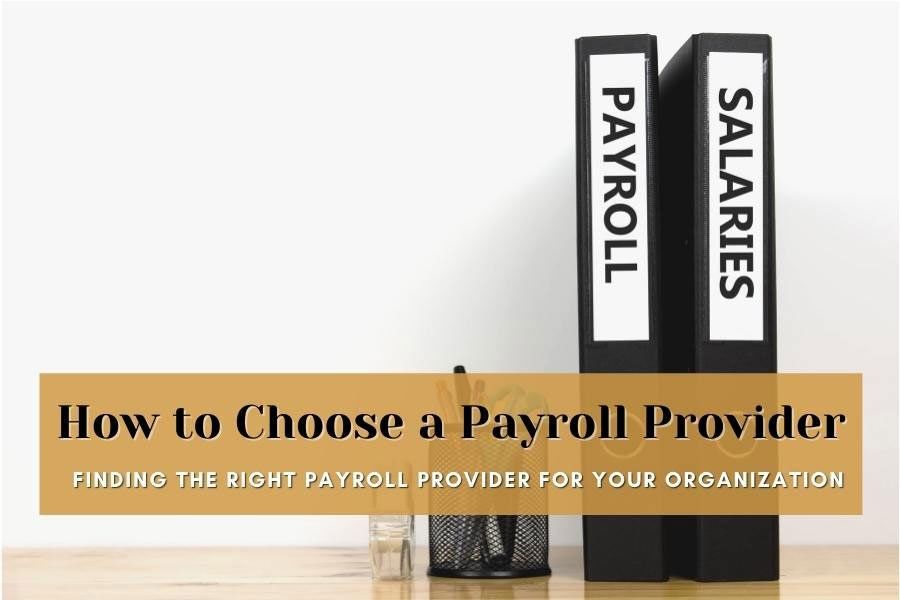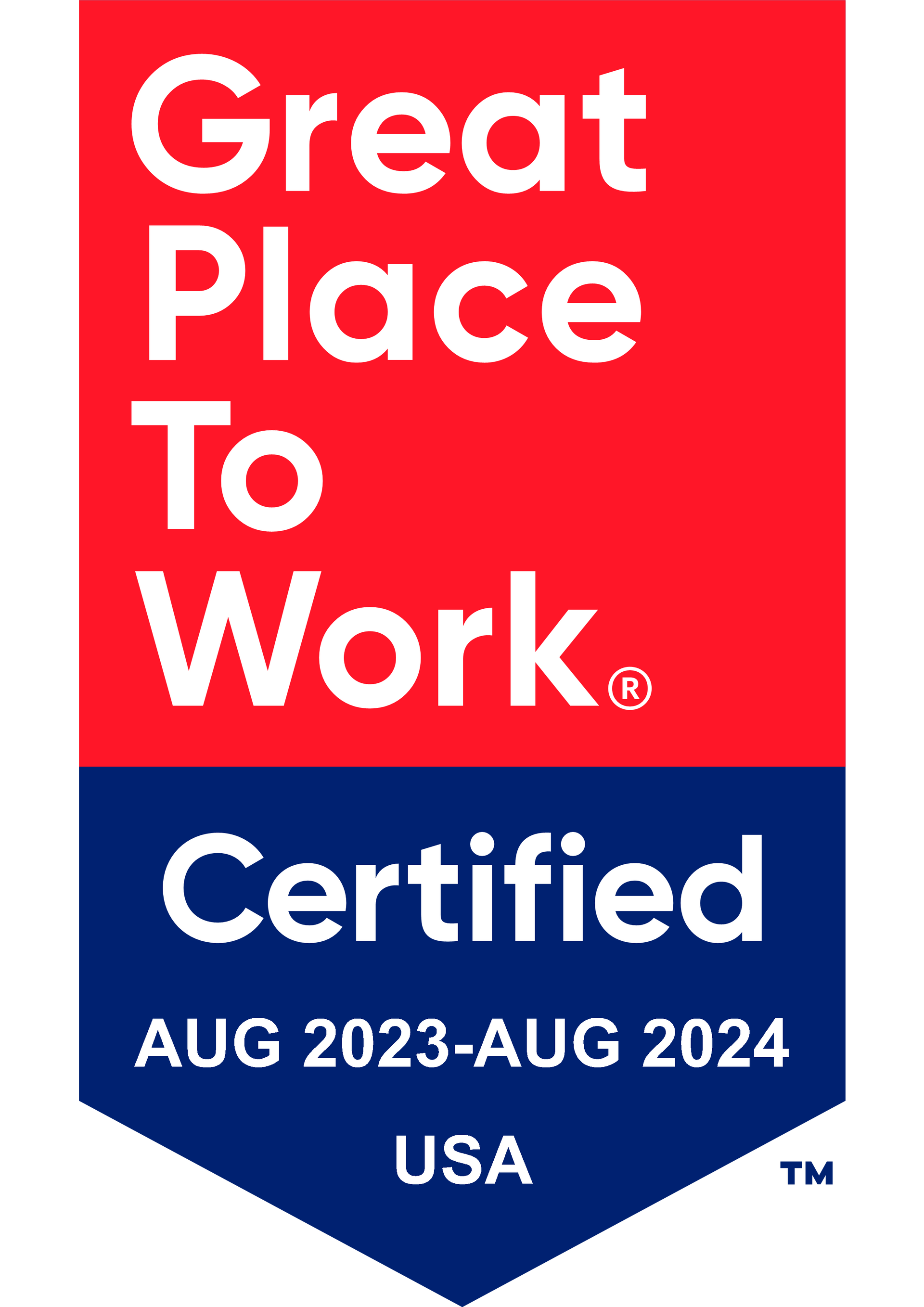Get in touch
408-366-8880
mymail@mailservice.com

How to Choose a Payroll Provider
Managing your payroll in-house, month after month, is an extremely time-consuming and detail-intensive operation. Seventeen percent of small businesses spend 6-10 hours a month on payroll-related tasks, and 11% devote more than 10 hours per month. And the time you spend can end up costing you in other ways, too. A shocking 40% of small to mid-sized businesses face expensive IRS fines due to incorrect payroll filing.
To free up time, reduce errors, and streamline payroll operations, many companies eventually outsource to a payroll provider. Wondering how to choose a payroll provider? In this blog, we explore the most important points to consider as you prepare to outsource your payroll.
WHAT SERVICES DOES A PAYROLL PROVIDER OFFER?
A payroll provider specializes in automatically processing payroll for the employees in your company. Payroll companies ensure that your employees are paid on time and accurately while meeting all of the associated tax and legal requirements.
Full-service payroll providers offer a range of core services, including:
- Payment of hourly, salary, and contract employees. The service should, at a minimum, automatically process payroll and calculate how much each employee earned during the payroll period.
- Real-time calculations for regular and overtime errors. The payroll provider will be able to automatically determine the correct amount of pay depending on where, when, and how much employees are working.
- Processing of payment via a preferred method, which typically is direct deposit to the employee’s bank account. Most payroll providers will also print checks at your request.
- New hire reporting. Payroll services handle the paperwork if your state requires you to report information on new employees.
- Tracking of paid time off (PTO) accrual and use, including vacation and sick days.
- Filing of payroll taxes. Look for services that include withholding employee taxes as well as the issuance of W-2 and 1099 forms to employees. Payroll providers also take care of filing quarterly payroll tax reports and paying the appropriate state and federal taxes.
- Automatic deductions of benefits, such as health and insurance benefits, retirement contributions, Flexible Spending Account (FSA), and HSA (Health Savings Account).
- Management of bonuses, reimbursements, commission, tips, and garnishments.
WHAT ARE THE BENEFITS OF USING A PAYROLL PROVIDER?
When you partner with a payroll provider, you want to choose a company that will seamlessly take the reins and delivers top-notch results. The benefits of a payroll provider include the following:
SAVES TIME
Because a payroll provider automatically processes payroll for you, your team will gain back those valuable hours spent slogging through payroll each month.
ENSURES COMPLIANCE WITH STATE AND FEDERAL TAX LAWS
It can be difficult to stay on top of ever-changing regulations. A payroll provider specializes in staying up-to-date on the latest tax laws so you can avoid fines.
REDUCES ERRORS
Payroll service providers are experts in their fields. Using a dedicated payroll company ensures your payroll information is correct, complete, and compliant with all relevant tax and legal requirements.
CLOUD-BASED SYSTEM INTEGRATION
If you’re using a cloud-based system – as many payroll providers are set up to do nowadays – you’ll be able to access payroll services on any device at any time.
Furthermore, employees can update their information, and new hires can get up to speed faster. If you choose a payroll service with a self-service option, employees will be able to view their paystubs, access their schedules and PTO, add changes, and complete tax forms on their own. New hires can also complete their onboarding paperwork electronically, saving valuable time on their first day on the job.
AUTOMATED REPORTS
Most payroll providers generate wage and labor reports, allowing you to gain insight and visibility into your organization and employees. This critical data can help guide you on future decisions and cut down on unnecessary spending.
HOW DO WE FIND THE RIGHT PAYROLL PROVIDER FOR OUR ORGANIZATION?
Payroll providers come in all shapes and sizes, and it’s important to consider your needs as you make this critical decision. Here’s what you should consider:
FLUCTUATING PRICING
Pricing will vary by service and number of employees, and it’s important to determine whether you’ll be charged by the month or by the pay period. Make sure to ask what’s included in any quoted rates, since adding services could drive up the price.
A basic plan that only runs your payroll will cost less than a plan that also processes payroll taxes and handles year-end tax reporting. Some companies also sell you on “bundling” additional services that you don’t really need, so it’s a good idea to come prepared with a list of your must-haves.
Ask about annual fees and whether they will increase each year. Also, ask the provider if they will charge you for adding or changing employees to the payroll. Always check the contract so you know which services your vendor has agreed to provide.
EASE OF USE
A payroll provider’s interface should be simple and easy for all employees to understand, especially if it offers self-service features. Request a demo so you can see exactly how the payroll provider’s interface works. Ask if any onboarding support is included in the package to help you and your employees get up to speed quickly.
POSITIVE RATING & REVIEWS
The payroll provider should boast positive online reviews and an excellent record for providing high-quality service to companies of your size and in your industry. Ask around for recommendations from similar businesses in your area and field. Ideally, you’re looking for a provider that merits top marks in responsiveness and accuracy.
ABILITY TO INTEGRATE WITH OTHER PROGRAMS AND APPLICATIONS
A payroll provider that syncs up with your current time and attendance tracking programs and accounting software is a must. When the programs integrate, for instance, the data from your employee attendance tracking program automatically uploads into the payroll portal without any additional manual input.
PAYROLL TAXES
You’ll want to find out what tax filing services the payroll provider includes and whether it’s worth springing for that additional service. Make a list of the tax services you need, which may include generating tax forms for your business, employees, and contractors; and managing compliance for state and federal taxes. If the payroll provider is handling your payroll taxes, confirm that they’ll update your payroll tax tables appropriately.
CUSTOMER SERVICE & ASSISTANCE
If you have any problems with payroll, you want to be able to reach someone for assistance at any time. Ask the provider about the hours of customer support availability and whether you can be assigned a dedicated representative to handle any concerns or issues that arise. Find out how often you can expect to be in touch with the payroll representative, especially at the beginning of the implementation phase (and whether they’ll be available via phone, chat, or email). Read reviews from other users to learn how promptly the company responds to customer needs.
DATA CONVERSION
Since you’ll need to import payroll and employee data from the old system to the new one, the payroll provider must ensure that the conversion is completed fully and accurately. Ask the service if they perform a compliance assessment to reconcile the data history and confirm that the data and tax settings are correct.
ADJUSTING CAPABILITIES WITH GROWTH
Your payroll provider should fit your current needs and also be able to grow with your company as the years pass. Ask the provider if the system will still work for your company if you add employees in the coming years.
INDUSTRY SPECIALIZATION
If you work in a certain niche, it may help to choose a payroll provider specializing in that industry. For instance, a restaurant business also requires a tip reporting service. Companies that employ union workers have to contend with the union deduction, setting aside a portion of the workers’ paychecks for union dues. And non-profit organizations may have a different set of tax regulations to follow. Sometimes, it makes sense to choose a niche provider for your unique set of needs.
HIGH-LEVEL SECURITY
Since you’re handing over sensitive employee information, check that the payroll provider offers high-level security to protect you from the possibility of data breaches. Ask which security measures are used, such as encryption standards, SSL certificates, and authentication steps. In a worst-case scenario, how would the payroll provider keep your data protected? A well-qualified payroll provider should be able to answer all of these questions with ease.
ANY ADDITIONAL FEATURES OR SERVICES OFFERED
Consider whether you’ll need any additional services at some point in the future. Some payroll providers also offer HR and benefits administration. If you’ve ever considered outsourcing those services as well, it makes sense to stick with the same company.
TAKE THE NEXT STEP WITH KBI
When you’re figuring out how to choose a payroll provider, there is no one-size-fits-all solution. The best option for your organization is the one that fits your budget, the size of your company, the number of employees, and deliver the right level of services.
At KBI Benefits, our technology consultants can work with you to map out your needs and determine the most cost-efficient payroll solution for your organization. We also enjoy strategic relationships with many payroll providers to ensure competitive pricing.
Contact us today using our online contact form or calling us at 408-366-8880 to learn more about how we can guide your company on the road to choosing a payroll provider. We look forward to assisting you!
Additional Resources:
- https://www.entrepreneur.com/amphtml/228730
- https://www.businessnewsdaily.com/7477-choosing-payroll-service.html
- https://www.inc.com/guides/2010/05/choosing-a-payroll-service.html
- https://www.prnewswire.com/news-releases/new-infographic-the-burden-of-small-business-accounting-taxes-and-payroll-300026479.html
- https://www.irs.gov/pub/irs-soi/13databk.pdf
Services
Latest Thinking




